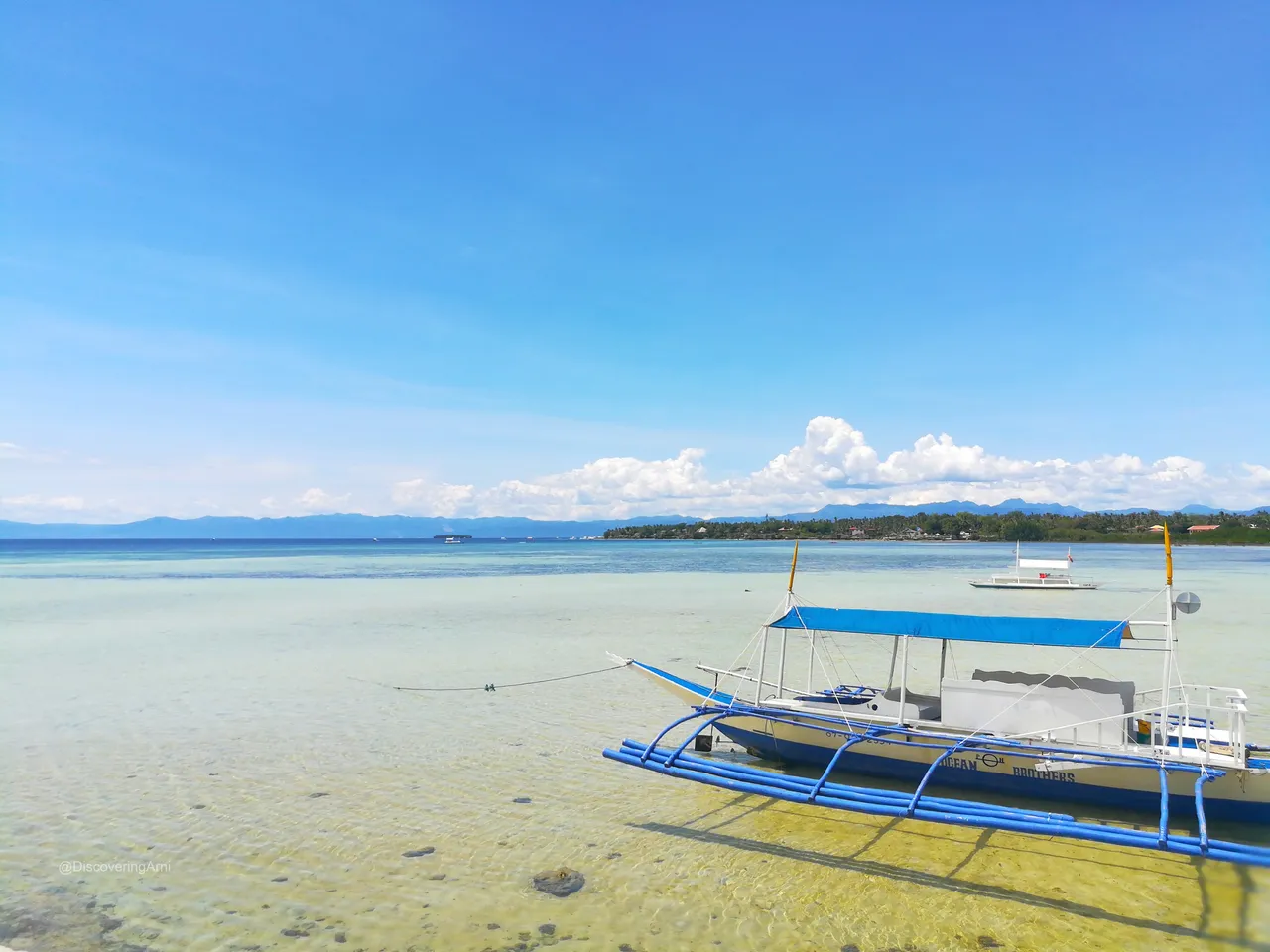
I live in Moalboal, a small coastal town on the south west side of Cebu Island in the Philippines, widely known for its excellent diving and impressive sardine run. Today, as I type this, all diving activities and snorkeling have been temporarily halted. This makes me sad. Diving is the heart and soul of this town.
The first thing I am going to do when this pandemic nightmare is over is dive under the sea.
I am sure my 2017 self would have run towards the other direction. This is coming from someone who was terrified of deep waters.
When I was young, I taught myself to swim in a pool, but was always staying safely in the shallows. I only built my confidence in swimming thru daily and habitual morning laps at a community pool in Dubai during my sabbatical. Yet, when I returned to the Philippines for good, I still couldn't snorkel without a life jacket. Not until our Apo Island Trip , when I suddenly found myself taking off the jacket and swimming freely in deep waters. I became slightly at ease but I would still need the life vest every now and then for my own sense of security.
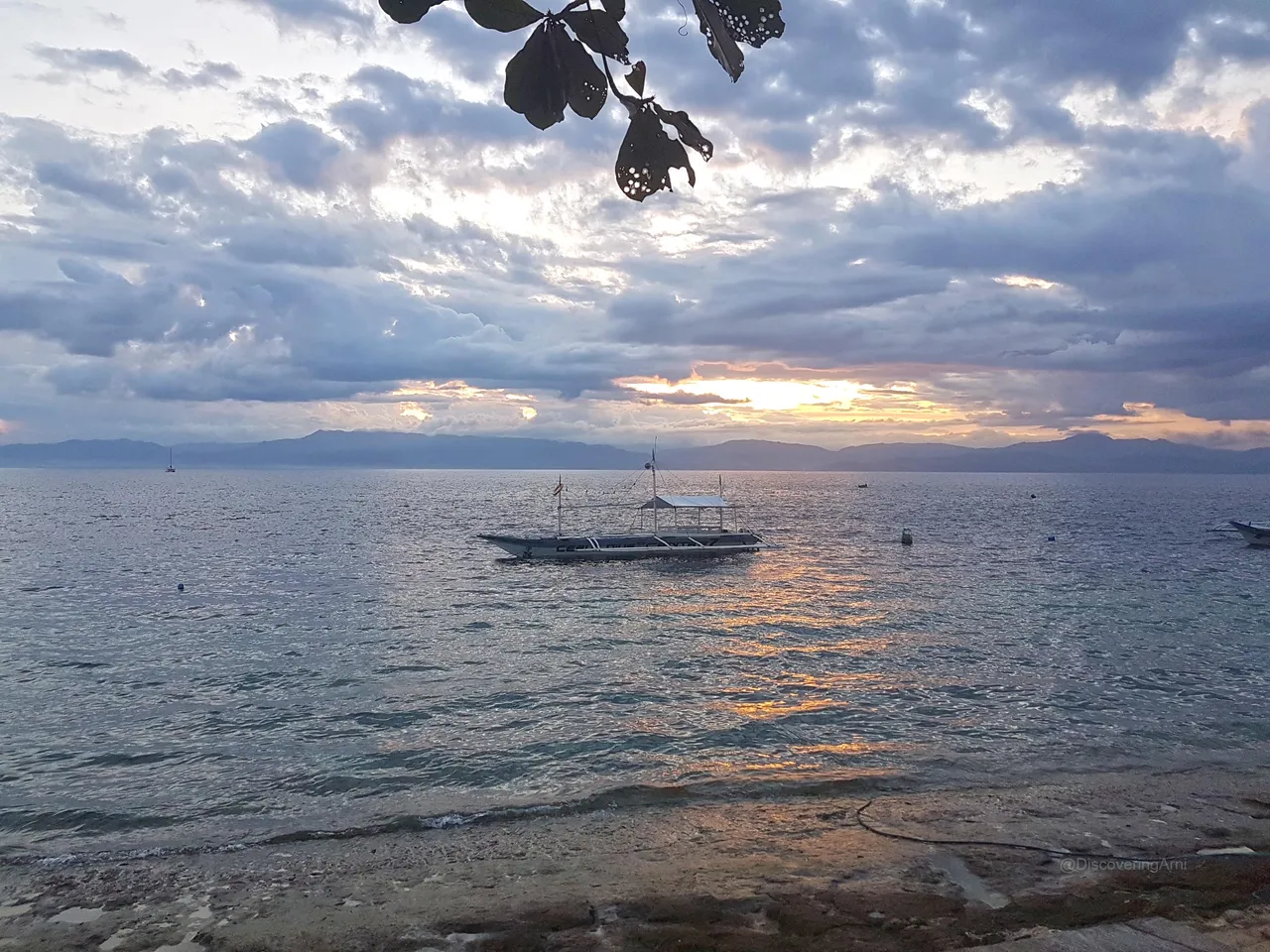
Most of our friends here are divers and instructors. Every night, we'd hang out at the dive bar and I'd watch divers and students come out of the water with smiles from ear to ear. My husband used to cajole me into doing it and each time I declined.
Imagine my surprise, as much as my husband's when I subscribed to a Discovery Scuba Dive last year.
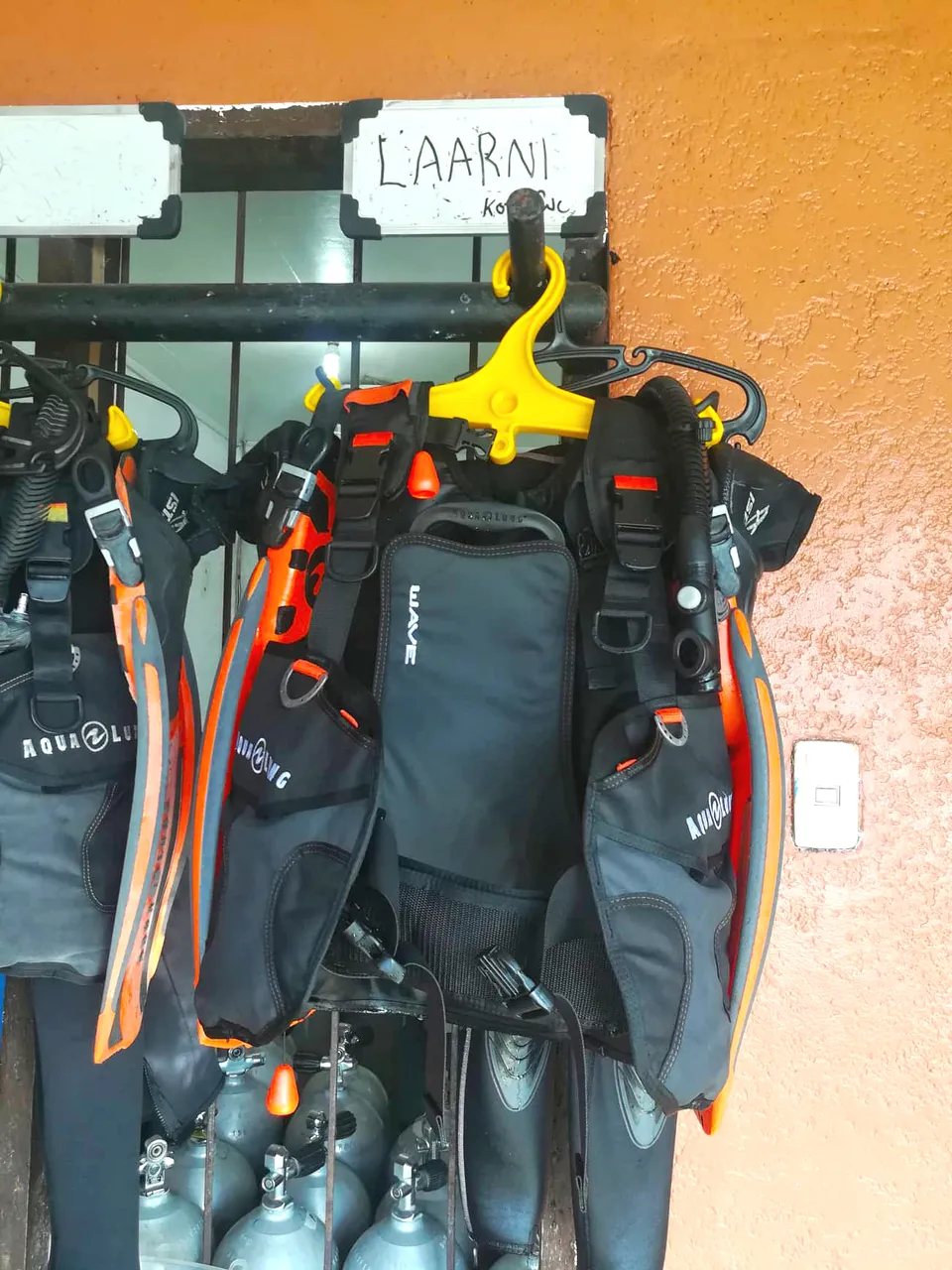
Discovery Scuba Dive
Discovery Scuba Dive (DSD) is a short course by PADI designed to introduce non-divers to Scuba Diving with a light amount of theory and in-water training. You can learn the basics in half a day and your instructor can take you to a maximum depth of 12 meters.
Duration: Half Day including 60 minutes in- water training
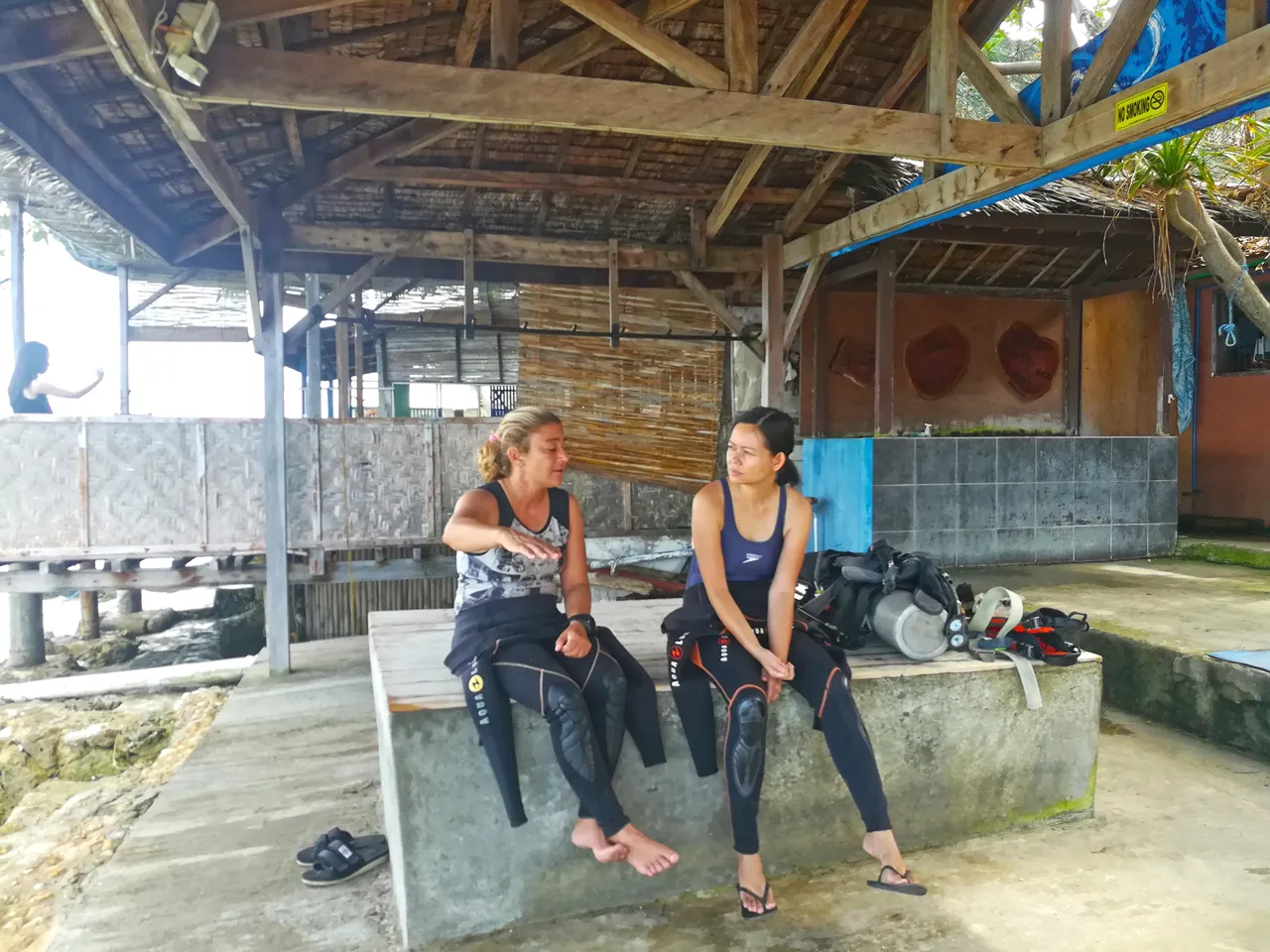
"I finally got to see the school of sardines underwater while looking up, at 10 to 12 meters depth. You see I have suffered from anxiety and paralyzing fear of deep waters so if I were to ask my younger self, the idea of me in a body suit with an oxygen tank was unthinkable. Yet, learning how it works with an excellent dive instructor who patiently guided me at my own pace, comfortably reassured me that I am in safe hands, thus I can do it, to breathe in and out and allow the meditative silence underwater to consume me. Thank you Koz and Cebu Dive Centre for the Discovery Scuba experience."- September 2019
Open Water Scuba Dive
2 months later in December 2019, I started my SDI Open Water Scuba Dive Certification Training with Cebu Dive Centre, it is an entry level course to scuba diving which provides training and required knowledge to dive around the world with a maximum depth of 18 meters.
Duration of the Open Water Course is: 4 to 5 days
The great thing about SDI was, we learned to dive with a dive computer.
In order to qualify to do this, I have to pass a mandatory Swim Test in the open sea.
Swim test consists of:
- 200 meter/yard continuous surface swim unaided or 300 meter/yard swim with mask, fins, and snorkel
I chose swimming for 300 meters with mask and fins and snorkel. Don't worry, there is no set time so you can swim the distance for as long as you would like to and in whatever swimming style you prefer (breast stroke, front crawl, back stroke) .
A cool thing happened, a large turtle swam right next to me during my swim test. Afterwards...
2 ) Float or tread in deep water for 10 minutes without holding on to anything for support. Your instructor will time you as you're doing this. I wore fins so I was asked to do it for 15 minutes.
Why is a swim test necessary?
To have a certain stamina in the water will help the student feel relaxed during a dive as well as emergencies, for example when the BCD (Buoyancy Control Device) fails when surfacing the water, the diver can signal assistance and calmly tread while waiting for the boat.
The Open Water training is divided into 3 parts
First Step: Academic Information - Classroom training , watching a video with everything a certified diver must know and reading a training manual. This could be an E-course / online training or self study.
Second Step: In-Water Skill Development Training. This is carried out in a swimming pool or in a confined body of water. In our case, we did it in the sea at a 3 meter depth protected area close to the shore. We did exercises, drills and fundamental skills that every diver should know. We learned equipment assembly, use and maintenance.
We did more skills while swimming underwater with mask and regulator, buoyancy control, basic rescue and various emergency scenarios. I was alone with my instructor throughout the course.
Last Step: Complete 4 or more Open Water Training dives where we practiced all of the skills. The final two dives were boat dives.
Since I am living in Moalboal, I did my course slowly, in staggered schedules so I could plan dives during ideal weather and with good visibility.
Finally, I earned my logbook and SDI Open Water Certification ID.
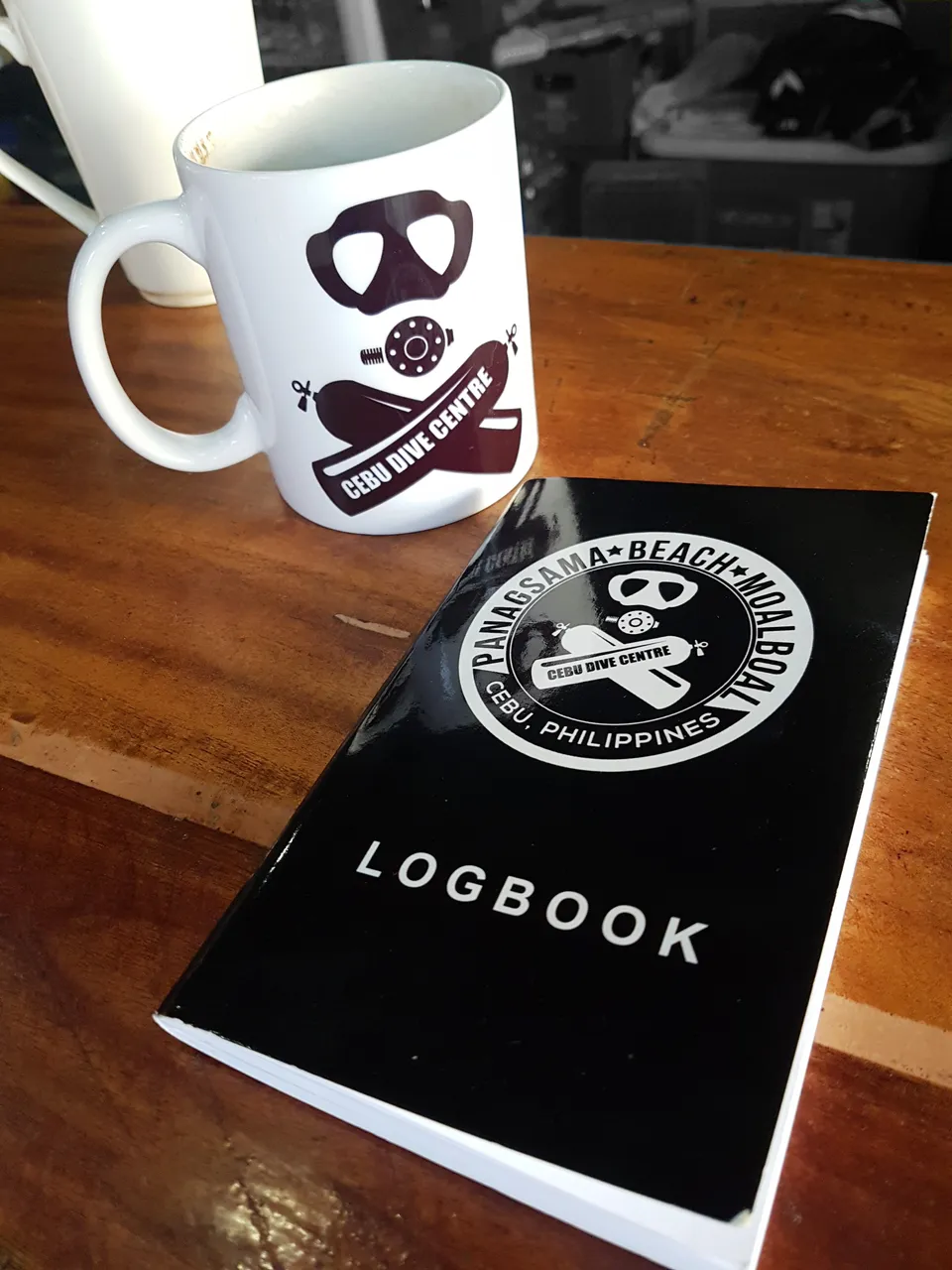
Christmas holidays came and went. I debated with myself whether I should pursue Advanced training or not.
The biggest answers to my "why do it?"questions were :
Someday, I want to dive with my husband and see thresher sharks in Malapascua, an island north of Cebu. In order to do that, I need to be an Advanced Open Water diver.
Night Dive was my ultimate fear. If there was one thing that terrified me, it was to swim into the unknown, in the deep and in darkness.
I continued hanging out with friends and other students at the dive bar. Every evening, I watched night dive students toast and celebrate as they downed their congratulatory shots of Rhum. They always said the same thing that the night dive is their best dive. Hmmm...
One night, after 2 bottles of beer, I decided to sign up to do the course along with my brother in-law who was visiting from France. That was it, no turning back.
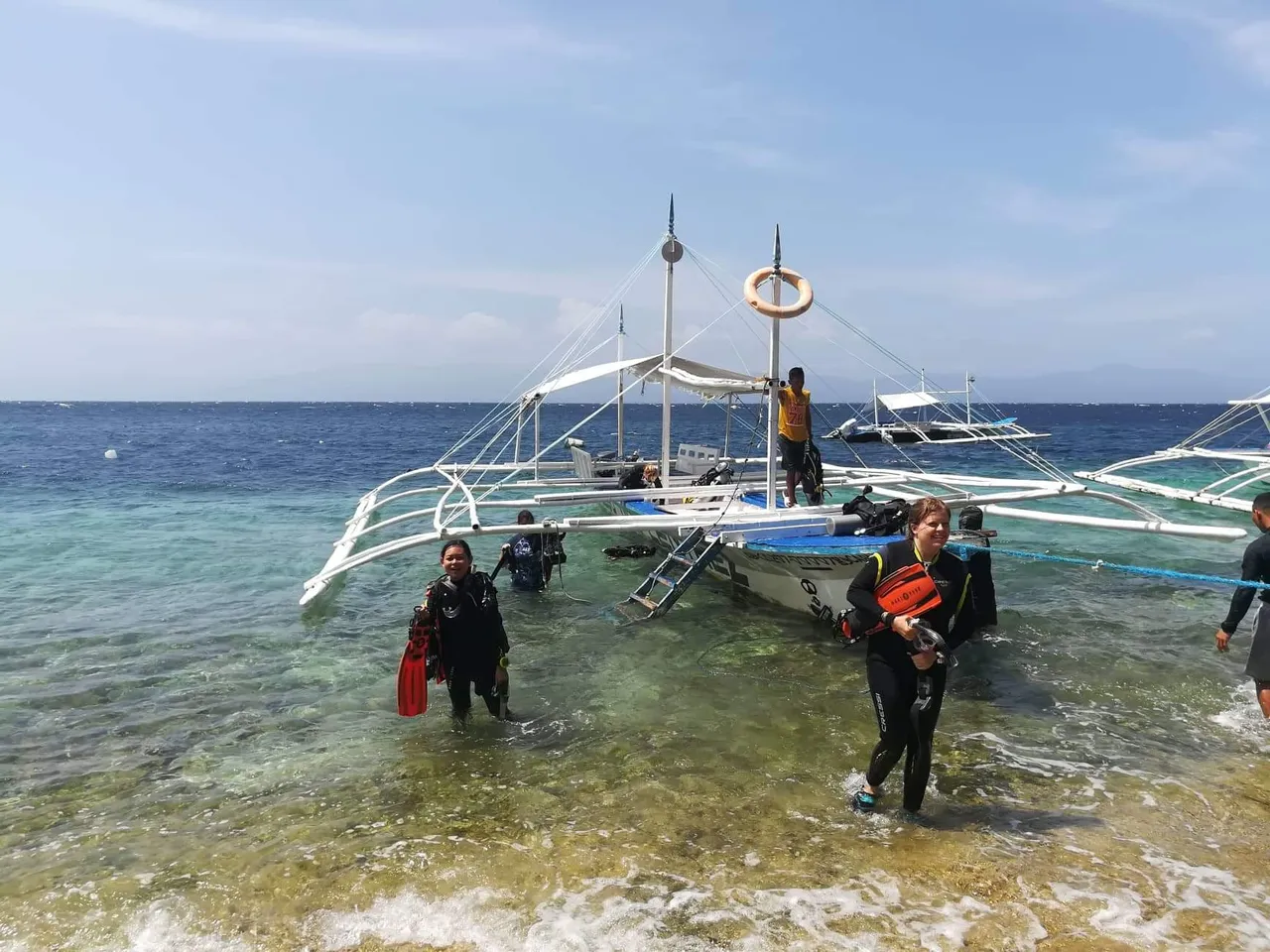
Advanced Open Water
Advanced Open Water Scuba Dive Course consists of 5 different adventure dives which will enhance diver's skills and diver's awareness on the environment. Once you complete the course, you will be able to dive deeper with a maximum depth of 30 meters.
Duration of the Training : 2-3 days
For SDI Advanced Adventure Dives, I selected:
First Dive: Advanced Buoyancy Control
Second Dive: Navigation
Third Dive: Deep Diving (Maximum 30 meters depth)
Fourth Dive: Drift Diving (learn how to manage currents safely in Pescador Island)
Fifth Dive: Night Dive (Shore Dive)
There are other adventure courses you can choose from such as:
Boat Dive, Computer Nitrox Dive and Marine Awareness Dive
While we were on a bumpy boat ride to Pescador Island one sunny day in February 2020, Max, my brother-in-law asked me what got me into diving.
I replied, "It was because I was terrified of it. I am crazy like that, like the time I ate a spider and jumped from the plane, these were also my big fears, but while diving, I discovered the joy of being underwater. It's very similar to meditation."
I enjoyed all of the adventure dives.
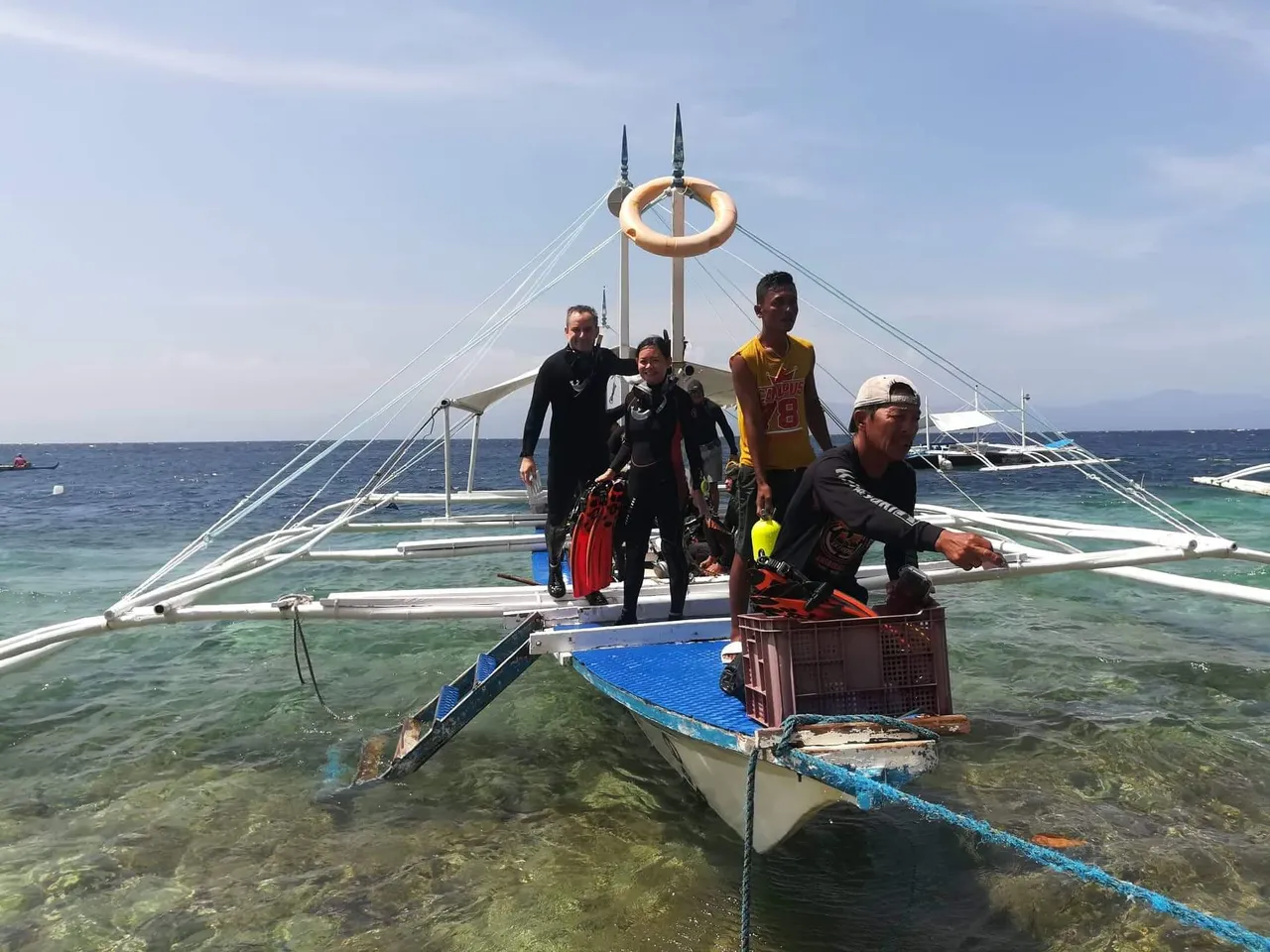
The Advanced Buoyancy Control was fun, we had to swim through mooring lines and develop swimming techniques to avoid corals.
I was alone with my instructor, Koz during the night dive. Those torches are strong! I saw a moray eel, different kinds of crabs carrying corals, large sea cucumbers, luminous intricate corals, stone fish all partying together underwater at night time.
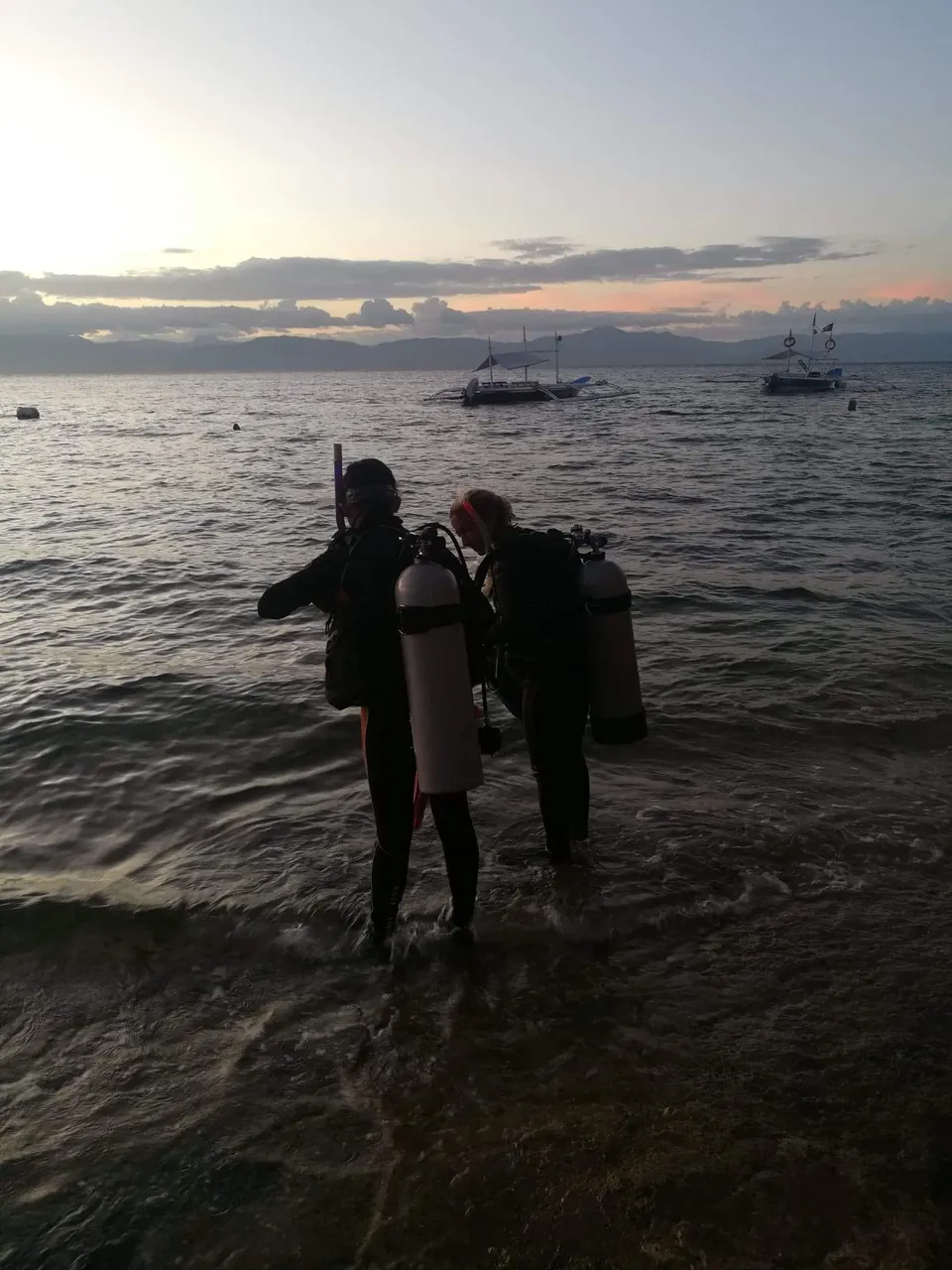
What I like about Cebu Dive Centre is the great vibe and positive energy there from the management (@scubahead), instructors and the staff. The students and fun divers who go there are equally fun to be with too.
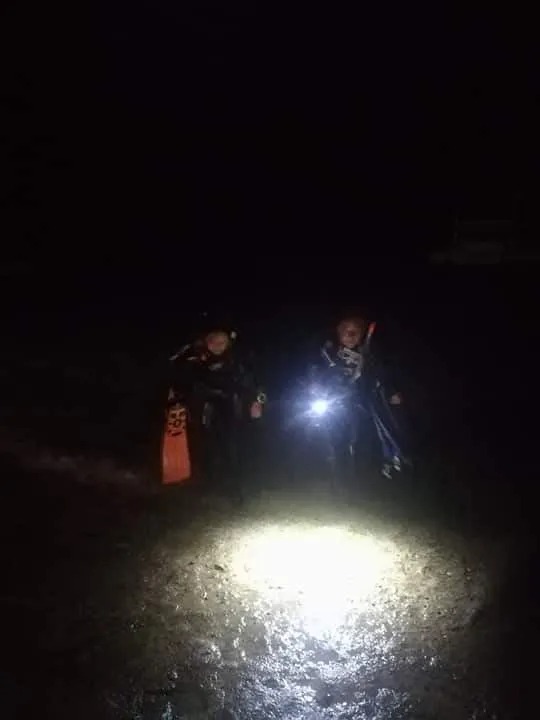
The Deep Dive was interesting, we got to see marine life that were slightly different. The depth doesn't really make much of a difference but we were taught to be careful not to stay longer than the set time on our dive computers during our dive planning. We were also in a buddy system and we need to be aware and be on the look out for any possibilities of getting "narced" or Nitrogen Narcosis which is similar to feeling drunk caused by breathing nitrogen under pressure. We didn't have any problem at all.
For me, the best thing about diving is the silence. One doesn't need to engage in small talk.
Max finished the course before I did because I had a terrible fever and flu towards the end that I was on complete bed rest for days. After recovery, I finally completed my Night Dive a month later and received my celebratory shot of rhum. :)
Do you like diving?
Which dive sites do you highly recommend?
If you haven't tried it yet, is it something you would like to try?
